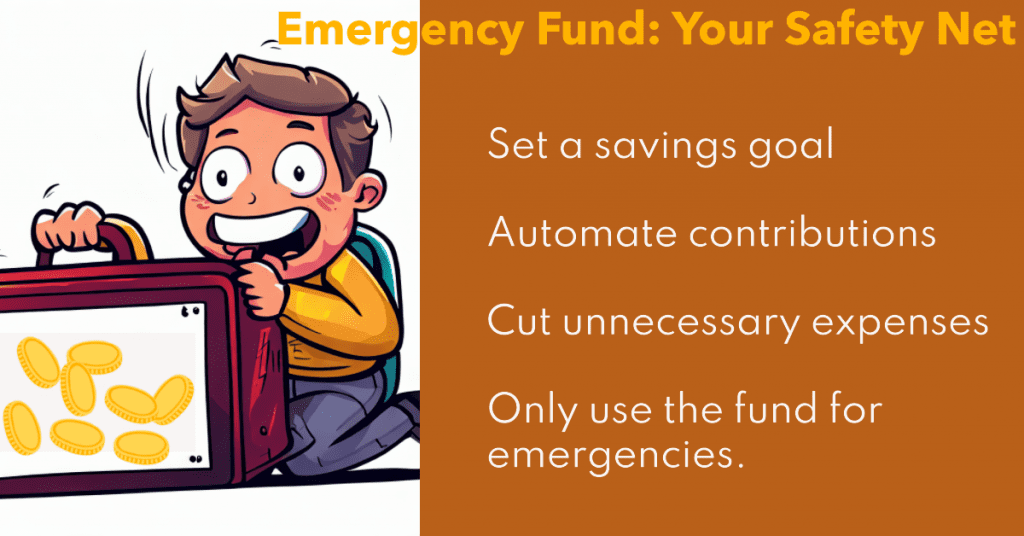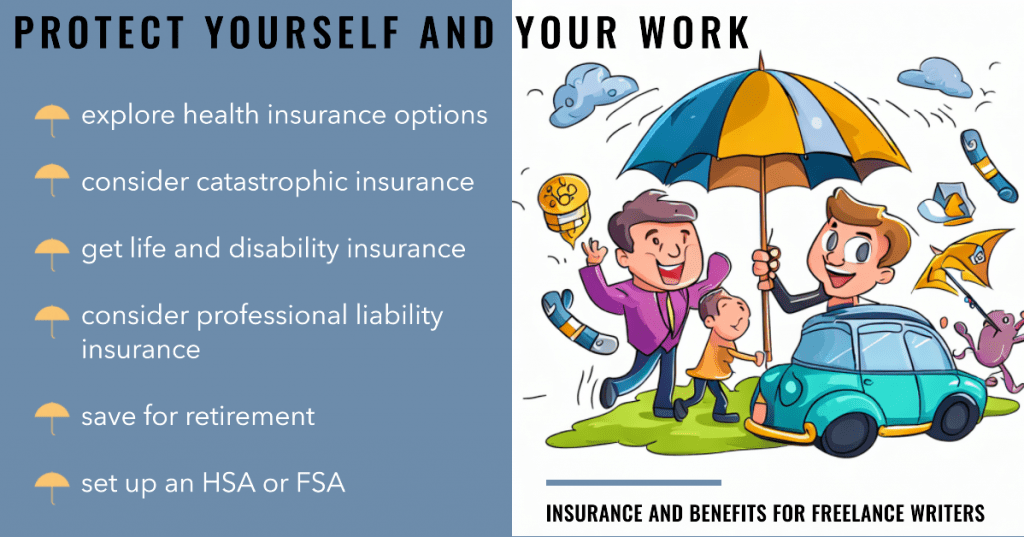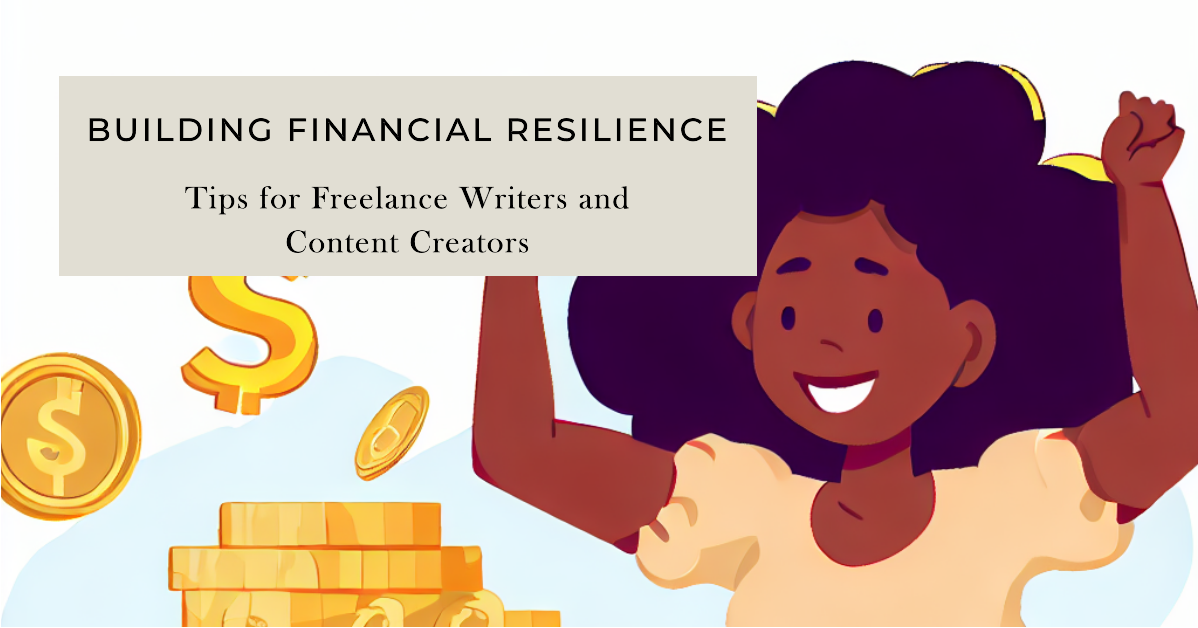Hey there, fellow freelance writer and content creator! If you’re anything like me, you understand the rollercoaster that is freelancing. The freedom and creativity it offers are amazing, but the financial uncertainty can sometimes be a bit daunting. In this article, I’m going to share my own experiences and some practical strategies to help you build financial resilience on your freelancing journey. Let’s dive in!
Table of Contents
Budgeting Essentials for Freelance Writers and Content Creators
Before we dive into building financial resilience, we need a strong foundation. The first step is setting up a budget. I use budgeting apps like Mint and You Need a Budget (YNAB) to track my expenses and income.
Sample Monthly Budget
| Category | Estimated Cost |
|---|---|
| Rent/Mortgage | |
| Utilities | |
| Groceries | |
| Transportation | |
| Healthcare | |
| Entertainment | |
| Savings | |
| Total Expenses |
Having a budget helps you understand where your money goes and ensures you live within your means.
Diversify Your Income
Freelancing can be unpredictable, so it’s wise to diversify your income streams. For me, this includes writing, but also affiliate marketing, online tutoring, and freelance consulting. This way, if one stream dries up, I have others to fall back on.
My Income Streams
| Source | Monthly Earnings |
|---|---|
| Freelance Writing | |
| Affiliate Marketing | |
| Online Tutoring | |
| Freelance Consulting | |
| Other Side Hustles | |
| Total Income |
Diversifying your income helps spread the risk and ensures that you have multiple sources of revenue, making your financial situation more resilient.
Emergency Fund: Your Safety Net

Having an emergency fund is non-negotiable. It’s your financial safety net that provides peace of mind during lean months or unexpected situations. Here are some additional tips for building and maintaining a robust emergency fund:
- Set a Clear Savings Goal: Determine the amount you want in your emergency fund. While the general guideline is to save at least three to six months’ worth of living expenses, consider your personal circumstances and needs. Some may aim for more to feel extra secure.
- Automate Savings: Set up automatic transfers from your checking account to a dedicated savings account each month. This way, you’re consistently adding to your emergency fund without having to think about it.
- Cut Unnecessary Expenses: Evaluate your monthly spending and identify areas where you can cut back. Redirect the money saved into your emergency fund. It’s surprising how small changes can make a big difference over time.
- Avoid Using It for Non-Emergencies: The key is to use the fund only for genuine emergencies, like medical expenses, car repairs, or unexpected job loss. Resist the temptation to dip into it for non-urgent purchases.
- Regularly Review and Adjust: Life circumstances change, and your financial goals may evolve. Periodically reassess your emergency fund to ensure it aligns with your current situation.
- Consider a High-Yield Savings Account: To maximize the growth of your emergency fund, consider putting it in a high-yield savings account. This type of account offers a better interest rate than traditional savings accounts, helping your fund grow faster.
- Build Over Time: Don’t be discouraged if you can’t fully fund your emergency savings in one go. It’s okay to start with a smaller goal and gradually increase it as your income grows.
Having a well-funded emergency fund is a crucial component of financial resilience. It provides a safety net when life throws unexpected challenges your way, allowing you to navigate difficult times without resorting to high-interest loans or credit cards.
Insurance and Benefits

As a freelancer, you won’t have access to traditional employee benefits, but that doesn’t mean you can’t protect yourself and your income. Here are more tips for securing insurance and benefits as a freelancer:
- Health Insurance Options: Explore health insurance options available in your region. You might be eligible for coverage through a spouse’s employer, a government marketplace, or a freelancers’ union. Compare plans to find one that suits your needs and budget.
- Consider Catastrophic Insurance: If comprehensive health insurance is financially out of reach, consider catastrophic health insurance. It typically has lower premiums and covers major medical expenses but has a high deductible.
- Life and Disability Insurance: Consider investing in life and disability insurance. These policies provide financial protection for you and your loved ones in the event of death or disability. Some industry-specific groups offer group rates for freelancers.
- Professional Liability Insurance: Depending on your freelancing niche, professional liability insurance (also known as errors and omissions insurance) may be beneficial. It protects you in case a client claims that your work caused them financial harm.
- Retirement Plans: Freelancers can still save for retirement. Explore retirement plan options like Individual Retirement Accounts (IRAs) and Simplified Employee Pension (SEP) IRAs. Contribute regularly to secure your financial future.
- Set Up an HSA or FSA: If you have a high-deductible health plan, consider setting up a Health Savings Account (HSA) or Flexible Spending Account (FSA) to cover medical expenses with pre-tax dollars.
- Emergency Savings for Benefits: Maintain a separate emergency fund for unexpected medical expenses. Health costs can be a significant financial burden, so being prepared is essential.
- Research Tax Deductions: In some cases, you may be eligible for tax deductions related to insurance premiums. Consult with a tax professional to make sure you’re taking full advantage of any available deductions.
- Continuously Review Your Coverage: Life circumstances change, and so should your insurance and benefit coverage. Regularly review your policies and update them as needed to ensure they align with your current situation and goals.
By exploring different insurance options and proactively securing benefits, you can protect yourself and your finances as a freelancer. Remember that the right insurance and benefits can provide peace of mind and financial security even in the absence of traditional employment perks.
Retirement Planning

Planning for retirement is crucial, even as a freelancer. I use a Roth IRA to save for my future. Contributing regularly ensures that I have a nest egg when I decide to retire. Here are more tips to help you with your retirement planning:
- Maximize Your Contributions: Contribute the maximum allowed amount to your Roth IRA each year. The more you contribute, the faster your retirement savings will grow.
- Invest Wisely: Consider a diverse portfolio of investments within your Roth IRA. Diversifying your investments can help reduce risk and potentially increase your returns over time.
- Take Advantage of Employer Plans: If you have access to an employer-sponsored retirement plan, like a 401(k), and your employer offers a match, contribute enough to get the full match. It’s essentially free money for your retirement.
- Regularly Review Your Investments: Periodically review and rebalance your investments to ensure they align with your long-term goals and risk tolerance. As you get closer to retirement, you may want to adjust your portfolio to be more conservative.
- Consult a Financial Advisor: If you’re unsure about where and how to invest, consider seeking advice from a certified financial advisor. They can help you create a retirement plan tailored to your needs and goals.
- Plan for the Long Term: Keep in mind that retirement planning is about the long term. Don’t be discouraged by short-term market fluctuations. Stay focused on your retirement goals.
- Consider a Backup Plan: In addition to a Roth IRA, explore other retirement savings options such as a traditional IRA or a solo 401(k) if you’re self-employed. Having multiple retirement accounts can offer flexibility and tax advantages.
- Stay Informed: Stay up-to-date with changes in retirement account rules and regulations. Tax laws and contribution limits can change, and it’s important to know how these changes affect your retirement planning.
By following these additional tips and being proactive about your retirement planning, you’ll be well on your way to building a comfortable nest egg for your future. Retirement planning is an essential part of financial resilience, ensuring that you can enjoy your later years without financial worries.
Tax Preparedness
Tax season can be a nightmare for freelancers. To make it less stressful, I set aside a portion of my income in a dedicated savings account. Additionally, I use TurboTax for easy and accurate tax filing. Here are more tips to help you navigate tax season with confidence:
- Quarterly Estimated Taxes: Since freelancers don’t have taxes withheld from their income, consider making quarterly estimated tax payments. This can help you avoid a large tax bill at the end of the year and potential penalties for underpayment.
- Keep Meticulous Records: Track all your income and expenses throughout the year. Using accounting software like QuickBooks or a spreadsheet can make tax preparation smoother.
- Utilize Deductions: Familiarize yourself with tax deductions available to freelancers. Common deductions include home office expenses, office supplies, internet and phone bills, and mileage for work-related travel.
- Save Receipts: Keep receipts for business-related expenses. They serve as evidence in case of an audit and can help you maximize deductions.
- Consult a Tax Professional: If your tax situation is complex or you’re unsure about deductions, consider consulting a tax professional. They can provide expert advice and ensure you’re taking full advantage of available deductions.
- Contribute to Retirement Accounts: Contributing to retirement accounts like a Roth IRA or SEP IRA can reduce your taxable income. It’s a tax-efficient way to save for the future.
Managing Debt
Debt can be a burden, and I’ve taken steps to manage and eliminate it. I prioritize paying off high-interest debts like credit cards and avoid accumulating more debt whenever possible. Here are more tips to help you effectively manage your debt:
- Create a Debt Repayment Plan: List all your debts, including balances and interest rates. Create a structured plan for paying off high-interest debts first while making minimum payments on others.
- Snowball or Avalanche Method: Choose a debt repayment strategy that works for you. The snowball method involves paying off the smallest debt first, while the avalanche method focuses on the highest-interest debt. Both can be effective, so pick the one that motivates you the most.
- Avoid New Debt: While working on paying off existing debts, avoid accumulating new debt whenever possible. Cut back on credit card usage and prioritize paying with cash or debit.
- Negotiate Interest Rates: Contact your creditors to see if you can negotiate lower interest rates on your loans or credit cards. Reducing interest can save you money in the long run.
- Emergency Fund for Unexpected Expenses: Maintain a separate emergency fund for unexpected expenses, so you’re less likely to rely on credit in case of emergencies.
- Consult a Credit Counselor: If you’re overwhelmed by debt, consider speaking with a credit counselor. They can help you create a plan to manage and reduce your debt effectively.
- Debt Consolidation: Explore options for debt consolidation, like a personal loan or balance transfer credit card, if it can lower your interest rates and make repayment more manageable.
By incorporating these additional tips into your tax preparedness and debt management strategies, you’ll be better equipped to handle your financial responsibilities and move toward a more financially resilient freelancing career.
Tools for Financial Organization
To keep my finances in order, I rely on a set of financial tools. Here are some that I find invaluable:
- QuickBooks for tracking income and expenses.
- PayPal for invoicing clients and receiving payments.
- TransferWise for international payments, as it offers competitive exchange rates.
Conclusion
Financial resilience for freelance writers and content creators is all about being proactive and prepared. It’s not just about making money but also managing it wisely and ensuring your financial stability in the long run.
I hope my personal insights and experiences, along with these tips, have provided you with a roadmap to building your own financial resilience. Remember, every freelancer’s journey is unique, so adapt these strategies to fit your own circumstances. Good luck, and here’s to a financially resilient freelancing career!
